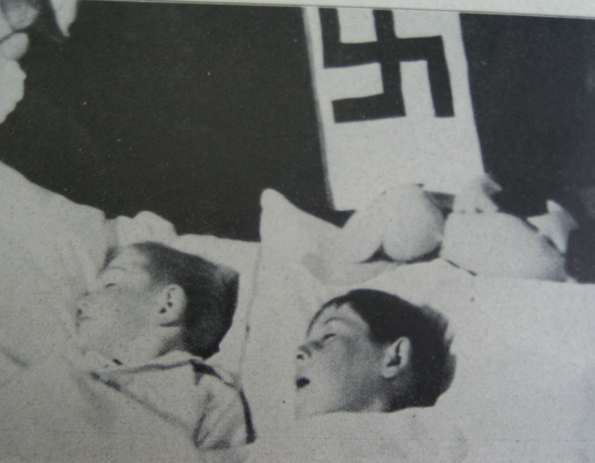Background: With astonishing speed, Nazism infiltrated every aspect of German life. This article, published only ten weeks after Hitler's takeover, shows Munich children playing a game based on the Nazi suppression of the Communist Party (KPD). In February 1933, the S.A. had taken over the KPD's Berlin headquarters, the Liebknechthaus, which the children have turned into a game. The children even establish a “concentration camp” for the captured “communists.” I was led to this article by Peter Fritzche’s excellent book Life and Death in Nazi Germany. Fritzsche thinks the photos were staged, although I suspect they were based on real activities, with a bit of help from the photographer (e.g., the nicely misspelled “Libknecht Haus” sign).
The source: “Das neue Spiel: S.A. räumt Liebknechthaus,” Illustrierter Beobachter, 15 April 1933.
The New Game: The S.A. Cleans up the Liebknecht House
How often do we think of our own childhood as we watch children play! After finishing the school work — and sometimes before — it was a pleasure to head outside and let childhood fantasy run free in games like thief or cowboys and Indians. Sherlock Holmes and Nat Pinkerton were the models for our inventiveness. Buffalo Bill roused us to courageous deeds, which often ended a free-for-all. We devoured the ten-penny novels, which often led us to imitate their tricks and pranks. Karl May’s thick novels did the same, bringing our imagination to a fever pitch.
Our post-war youth do not always have it as easy and pleasant as earlier generations. Particularly in big cities, the lack of room to play has particularly noticeable effects on children. The spiritual pressures of the last fourteen years always weighed heavily on children's souls, hardly allowing their natural playfulness to be expressed. And the asphalt literati thought that it was bad for children to be interested in military games. Such snobs joked about the little lad with a wooden sword and a paper helmet.
In this area, too, much has changed since 5 March [the last real election]. The national revolution also did not leave children’s souls untouched. Even the youngest children sing the Horst-Wessel Song with burning enthusiasm and real devotion. The youth greet S.A. and S.S. men with raised arms and a joyous “Heil Hitler.” The strong figures in brown shirts earn the respect and quiet admiration of children's hearts, joined with the longing to themselves become such a Hitler soldier.
There is a lot of noise in the courtyard of a large Munich apartment building. The boys have invented a new and lively game. Between them, they have gathered 2.40 marks to buy the necessary equipment. A “Brown House” [Nazi Party headquarters] has been built with cloth and sticks in the center of the courtyard. Inside the tent are a picture of Adolf Hitler, and a postcard with the words of the Horst-Wessel Song. The five- to twelve-year-old boys have done everything themselves. The happy owner of a drum is the leader. They practice hard, and succeed. They study the songs. Things often get lively, for example when the Karl-Liebknechthaus, made of old trash cans, is stormed. It is then searched and the communists taken off to a concentration camp. The littlest S.A. man is so eager that he is often in the courtyard early in the morning to call his comrades together. He is thought to be very brave. His improvised brown shirt is a little tight around the neck. He can hardly breathe when the collar is buttoned. When a grown-up expressed concern, he proudly answered: “An S.A. man has to be able to put up with that!” With a thoughtful wrinkle of his brow, he got back to work.
In the evening, their mothers call them in for supper. The Sandman then slips into their quiet dreams, drumming and trumpeting, and they sing, attack, and triumph.
The youth once again has a future...
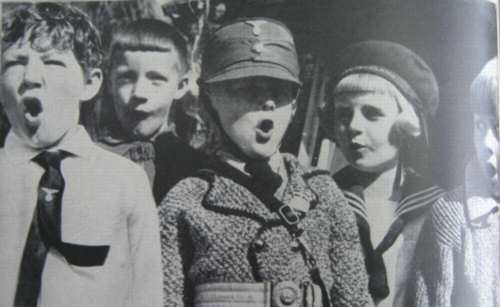
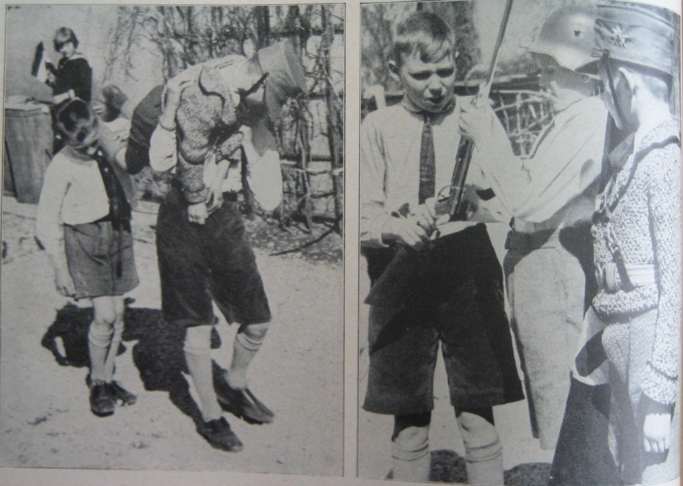
“Experts” drill the troops in “Present arms!”
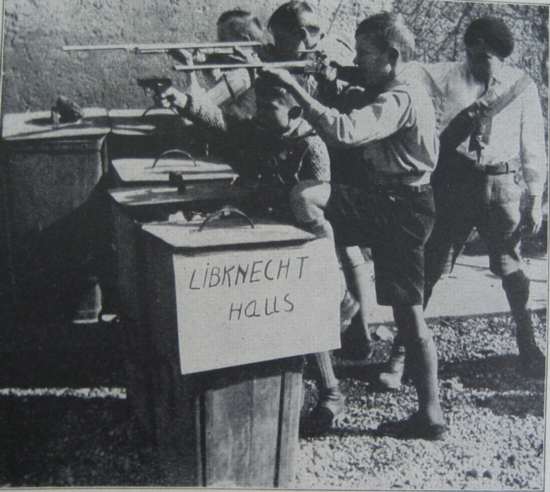
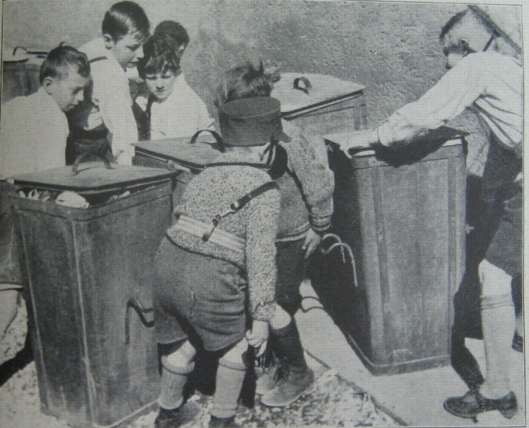
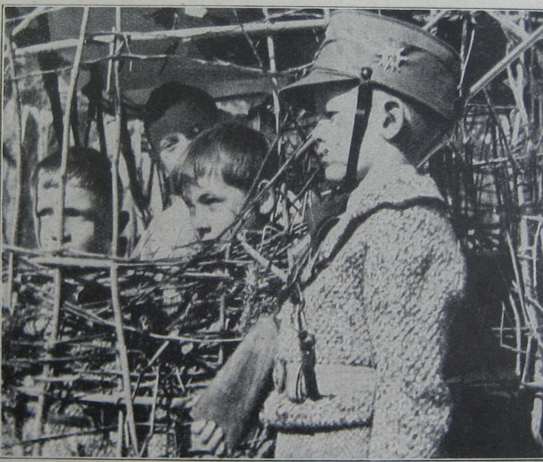
in the courtyard.
